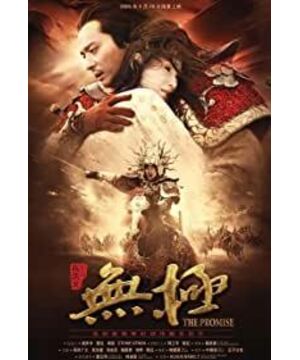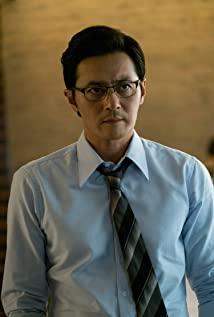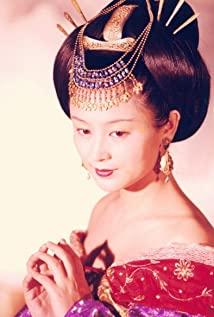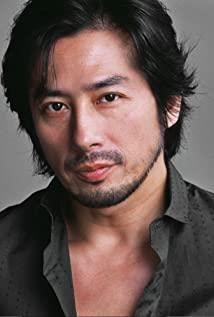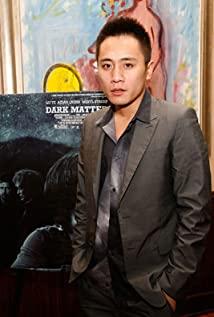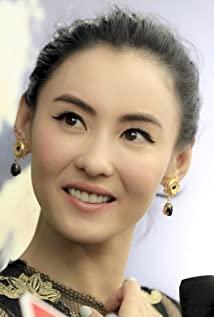foreword
I wrote a long-winded foreword before, with a lot of textual research, and it has been written separately (see "Background - Wuhuan and the King" ). It mainly tells about some backgrounds that may be related to the creation of "Promise", and the reasons why Chen Kaige stubbornly uses various symbols to parallel multi-threaded narrative regardless of the smoothness of watching the movie.
In short, there is a shadow of the French Revolution in the inspiration of "Promise". The pursuit of the spirit of freedom by the French coincides with the "Road is invisible" that "Promise" wants to express. Therefore, when Chen Dao designed the villain, he borrowed the artistic elements of the real and fake emperors in "The King and the Bird", and used the two roles of "King" and "Wuhuan" to establish the image of a tyrant who is "ruthless and immoral". .
After the death of the king, there was no heir, and Wuhuan became the actual controller of the king's city. He occupied the royal city, manipulated the parliament and the court, and fought against the light. Worldly power is absurd in the hands of an incompetent king, and a nightmare in the hands of Wuhuan.
betray
Wuhuan is young, handsome, of noble birth, and skilled in martial arts, so he can easily become a fan. Almost all the clips related to "Promise" that can be found on station b are all unhappy, and I am moved. But Wuhuan is indeed a real villain. This also shows how unpopular "The Promise" is.
Seriously, we must analyze a person, and we must observe from his behavioral patterns, especially the repeated parts of the behavioral patterns. Repetition, this word is used in Wuhuan's body, it can be said to be very obvious. As long as he wants to believe in others, he will be betrayed and betrayed.
The handsome lord just touched the little girl and was beaten like this!
Wait, does this scene sound a little familiar?
Let us recall the episode of Xiao Qingcheng .
I lied to him, beat him, robbed him, and dumped him. Allure's actions can be said to be done in one go (as expected of my Allure).
It's really like people gather together, Kunlun's sister and Qingcheng were so unconscionable when they were children.
If you extend it a little further, in the end, the light under the begonia flower did the same thing: deceive Wuhuan to let him down, and then sneak attack! The dignified general, not to mention lying, even sneak attack!
Almost forgot about the ghost wolf. This timid person who is afraid of death and even controls his life in Wuhuan's hands can actually betray him! He betrayed him again and again. In the end, Wuhuan asked Guilang to choose whether to save his fellow villagers or his own life (armor or robe), but Guilang actually chose to die by himself.
OMG! Is there anything else in this world that can be trusted?
Why is everyone so disgusting?
little lord
There is no one in Wuhuan's eyes, only opponents and slaves.
Wuhuan is different from others. He has been a little lord since he was a child. When he was young, he had a father, and of course his father was different from others. Dad has a lot of soldiers, they "are my father's people when they are born, and my father's ghost when they die", so "whoever steals them is stealing from me." In order to survive, Qingcheng took the things of the dead on the battlefield, which is equivalent to selling himself to Wuhuan. This is unhappy logic.
Born from a noble Northern Duke, Wuhuan has known good things since childhood. In order to get Qingcheng, he stared at her among the dead for days, and set traps (disguised as dead people in boots) to induce Qingcheng to steal from the living, commit crimes, and force her to become his slave. (The first time to catch Allure)
He did this with good intentions, was reasonable and legal, and was sincere. In the end, he even went against his own reason to please her without believing in Qingcheng.
Qingcheng lied to him without hesitation, beat him, and ran away like a rabbit.
In the episode of Qingcheng's escape, Hu Ge's spoof video is composed of "Iron Blood Danxin". In fact, a comparison will show that Wuhuan and Wanyan Honglie, the little sixth prince who climbed out of the dead pile and harbored ghosts and lust at the same time, can be said to be seamlessly connected. Hu Ge is indeed a genius, and many aspects of the video show that he really understands the film language in "The Promise". He just can't accept this fantastical logic narrative.
It's a pity that Allure is not Bao Xiruo of the Virgin's Heart. Comparing the tragic fate that Bao Xiruo brought to her relatives and friends, and even herself, you can probably understand why I was talking about Qingcheng from the beginning, and spared no effort to praise her virtue and bravery. Only when you understand and truly love such an alluring city can you truly understand "The Promise". Hu Ge should be at a loss in this regard.
Wuhuan's first attempt to catch the helpless orphan girl Qingcheng failed. When we meet again, Qingcheng is already a princess.
This time he brought a large army to surround the royal city. In order not to let Guangming get in the way, he designed to use the barbarian rebels to lure away the general Guangming (see " Accent Chapter - Jingqiang "), and also sent carefully trained assassins to kill him.
Here are a few plot details that were omitted. For example, how Qingcheng became a princess from an orphaned beggar, and why did Wuhuan not seek and take revenge on Qingcheng after she was shriveled. Among them, the growth of young people is directly omitted. But this omitted part is extremely crucial.
Allure was directly taught Wuji's secret by Manshen. Wuhuan, who was born at the apex of the world, must have one of his family missions to penetrate the secrets of Wuji. Qingcheng has no birth capital, she can only give up true love in exchange for it. And true love is like a natural insulation from Wuhuan. So I can’t help but ask: What is the secret of Wuji so perverted?
Promise's Secret
The unit characteristics of Wuji are probably like what I am doing now, trying to sort out the laws of the fantasy and organic stories with mechanized logical thinking. The secret of Wuji is to use a lot of logic to simulate the original appearance of the real world. When the amount of computation is meticulous and huge to a certain extent, even infinite, you can make all the laws for your own use. Using a common rhetorical device in literature, it is called "calculation without a last resort"; using a popular saying in modern times, it is called game theory; using Internet terms that appeared ten years after the release of "Wuji" to describe it, it is called the king of routines.
Those who have mastered this secret can get almost everything in the world, except that they cannot get the true love of others. Because all your happiness and power is a meticulously simulated illusion, and true love is an extension of life, a life-for-life thing. "Giving", "trusting", giving oneself to the other party and destiny are things that stupid people do. Qingcheng, Wuhuan, and Guangming are not such people. Even if he is as stupid as a king, he knows that love is just a stumbling block, and he sells the city without hesitation.
Not only that, Wang also gave a speech to the crowd on the top of the Wangcheng Wall. The king was surrounded by a heavy siege, and his bearing was leisurely.
Yes, compared with the ruthless and loveless general at that time, Wuhuan, who could never give up the allure, could only be a second-rate person. He didn't even think he could kill the king.
Because killing the king violates the routine.
In fact, the real general Guangming will not kill the king. Guangming is a wise man, knowing that killing the king will cost him everything. This is the trick.
From this routine we can draw two more people.
One is the king. When a person is so stupid that he can't see the goodness of the relationship at all, he is not ashamed, and his eyes are all interests. Because routines are also shackles. When the routine kings wrestle with each other, it is the time when the fisherman gains. He doesn't need to be good at calculations, and he will never suffer if he can get it.
One is Kunlun, who can also be called the "anti-routine king". This person has been a slave since he can remember, and he can buy his life by eating meat, and he doesn't play cards according to game theory at all.
Three people who are good at routines in "Wuji": Guangming, Wuhuan, and Qingcheng. The three have their own characteristics apart from the general routine.
Bright's routine is "the strong is king" and "everything can be conquered".
Allure's routine is "men are all lustful" and "what you can't get is the best".
Wuhuan's routine is also his shackle, one of which is said through the battle with the ghost wolf:
"The world can get anything you want, as long as you are bad enough."
There is another, I guess it is probably: only slaves are their own.
But in fact, what he always wanted was the other party's true love, or true love.
That's why he will untie the ropes under the cover again and again. Even if you are intellectually clear, you will face betrayal after betrayal.
appearance
Xiao Wuhuan looks ugly, with a black face, swollen eyes, small eyes, a silly smile, and a silly voice. But Xiao Wuhuan's actors are not like this in other films.
We can see that the little actor has no swollen eyes, and even his skin is very white. Although the eyes are small, they are really not as ugly as in the movie. The guy is quite handsome when he grows up, and he can't think of the same person without looking at the cast.
The image of the ugly, self-conscious and annoying Xiao Wuhuan is in stark contrast to the beautiful, restrained, and affectionate Xiao Qingcheng played by Guan Xiaotong. Although the two have a huge disparity in status, one is an official and the other is a thief, Xiao Qingcheng deceives Xiao Wuhuan to beat Xiao Wuhuan, it seems so natural, so righteous, and seems to be venting his anger for the audience to beat this annoying guy. Guan Xiaotong has grown into a great beauty now and has played countless roles, but it is still Xiao Qingcheng who will be mentioned because of her acting skills and aura. This movie has been very successful in training the actors, so we have reason to believe that Xiao Wuhuan was deliberately trained to be this annoying.
Xiao Wuhuan is the first appearance of the character Wuhuan. In the second appearance, Wuhuan led troops to surround the Wangcheng as the Duke of the North. But if you look at the timeline of the story in the play, Wuhuan's real second appearance will be earlier.
When Kunlun wanted to return to the Snow Country, he went back in time and space to five years ago and saw Wuhuan wearing a clown costume. The clown suit Wuhuan destroyed Xueguo and conquered the ghost wolf. This is his second appearance on the timeline. At this time, Wuhuan was already a cold and handsome young man.
It is easy to make an ugly face beautiful, but it is difficult to make an ugly heart beautiful. Wuhuan learned his lesson and let himself have a flattering appearance, but he did the same thing: after he arrested the Snow Country people, he "requested" one of them to be his slave.
At this time, Wuhuan was beautiful and polite, but he was still beaten when he showed his favor to Kunlun's sister.
Wuhuan is not hated because he is ugly. But it was difficult for him to recognize this himself. From little Shi Lei to Nicholas Tse, we have seen Wuhuan's efforts: a nasty guy with a handsome face doing all kinds of disgusting and wretched things; a guy who longs for love has turned himself into a big villain.
Let people say something good...
His only "progress" was "figuring it out": "Those who are afraid of death will be slaves." So he tossed the succumbed ghost wolf to the brink of death, and then locked his body with a black robe.
He called Guilang an "old friend", and Guilang looked at him with only fear in his eyes.
Love
I mentioned earlier in the section "Allure - Bird in a Cage" that because of the change in Allure's makeup and accent, it implies that Wuhuan and Allure are a couple who truly love each other. There is also a cross-dimensional hint that Nicholas Tse and Cecilia Cheung were husband and wife in reality at that time, golden boy and girl. In the play, Qingcheng is the princess, the most beautiful woman in Wuji; Wuhuan is the Duke of Bei, the man with the highest appearance and status in Wuji, who is as famous as Guangming. Wuhuan went to great lengths to get Qingcheng, if Qingcheng was completely unmoved, at least it was unlikely at this time.
Although the "general" just killed the king and jumped off a cliff for her, it is impossible for her to come back alive after all. What kind of mood does this person in front of him have in order to get him to lead a large army to surround the king's city and force the king and the general to death?
A person who seems to make you have to admire is trying his best to get you, how can Qingcheng not have a little curiosity in his heart? Curious about each other's mind, curious about the possible future of the two. She sneered at the golden birdcage, looked up and down the man in front of her with interest, and took the initiative to test it out. If it weren't for the drooping blue silk, I really couldn't tell whether she liked it or not.
Outside the dimension wall, the happy appearance of Nicholas Tse and Cecilia Cheung and their family is also familiar to the audience - golden boy and girl, a match made in heaven. In the play, the two people talk in the same way and have all kinds of scheming. The conversation between the two is like a person looking in a mirror. If Qingcheng was kidnapped by Wuhuan to become a duchess, it would be the expected ending.
It's a pity that Wuhuan didn't even dare to hold Qingcheng this time.
Not only that, but he also broke her heart with sharp words.
This time he dodged all the attacks of Qingcheng, in his golden bird cage, when the other party knew nothing about him.
In the last scene of the duel under Begonia, Wuhuan explained his true purpose: he came for revenge and was obsessed with destroying the woman who gave him PTSD in love.
Wuhuan's motive is not to kill Qingcheng, but to make her become the same person as herself by destroying everything in Qingcheng.
He needs Qingcheng to feel the same despair and pain as he feels in loneliness. That way he doesn't seem so lonely.
This was the goal he had to accomplish in his death.
And Allure in the Golden Birdcage knows nothing about it, and the audience knows nothing about it.
Symbolic - Bird and Knife || Failure
The symbolism here is very confusing. Because Wuhuan's image is very obviously borrowed from "The King and the Bird" (see "Wuhuan and the King "), it is very strange that Wuhuan's logo uses a bird. Because in The King and the Bird, the bird is the representative of freedom. Every time Wuhuan appears, it means darkness and uncertainty.
The only plausible explanation is that the symbol of Wuhuan is not a bird in general, but a single crow. The bird's symbol of freedom is displayed by Qingcheng, who is wearing a white feather coat. Even after Kunlun's resurrection, he received a big red feather coat from Ghost Wolf (the symbolism is temporarily unknown). But in fact, the image of the bird is actually very abstract most of the time, and Wuhuan's subordinates also have white robes and white feathers. For a film work that relies heavily on symbolism to achieve multi-layered representation, this operation is too crude.
As almost the only negative boss in the play, Wuhuan's various symbolic ambiguities are a major failure of the play.
When I was writing Wuhuan, I was very calving. Later, I had to admit that almost all the failures of "The Promise" came from Wuhuan.
Another important failure is in the last scene: Wuhuan was stabbed at the key by Kunlun, and then he seriously injured Kunlun with his backhand. At this time, Wuhuan's hand was empty. Kunlun who fought for his life. This knife can't be justified in terms of symbolism, because it is indeed inserted into a person. And pulling the knife out of the key is a heavier injury than a stab wound, and it is very likely that he will die at once. So if the unpleasant thing is a fatal injury, as a human, he has no chance to complete this seemingly simple counter-kill operation.
Another failure, such as Yeli, is also a negative character.
Wujili's description of the bright side of human nature is superb, but the description of the evil side of human nature is too face-to-face, and it can even be said to be heartless. It seems that there are only gods in the boundless world, but there are no gods of evil and chaos. The director's own limitations and likes and dislikes can be seen in Wuhuan's body.
View more about Wu ji reviews


